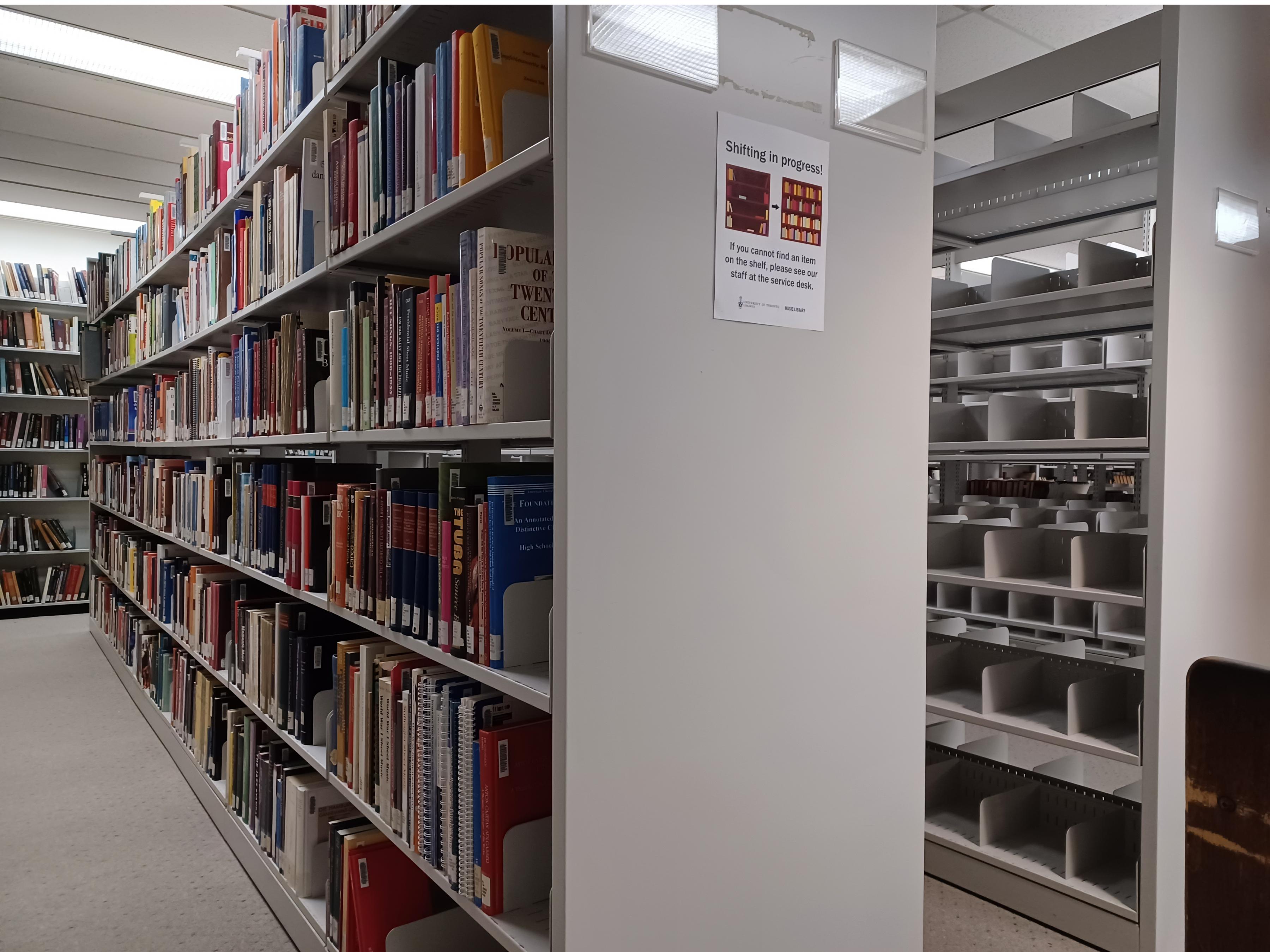As you make your way back to the Music Library you may have noticed that things look a little bit different in the Music Library. We are currently shifting items around as part of an ongoing process to make our collections more physically accessible. Please bear with us, and if you have trouble finding anything, we are here to help!

Disability can be defined as “any culturally stigmatized bodily difference” (Strauss 2006, 119). Bodies themselves are neutrally defined, accruing stigma only through cultural reception: disability is not a fixed, medical condition, but emerges from a society that chooses to accommodate some bodies and exclude others.
As Davis 2002 explains, “An impairment involves a loss or diminution of sight, hearing, mobility, mental ability, and so on. But an impairment only becomes a disability when the ambient society creates environments with barriers.”
Disability Studies is an argument for placing a positive value on formerly stigmatized bodily differences. When assessing disabled bodies and the activities of people with disabilities, Disability Studies is interested in what the disability has enabled and in what has been achieved not in spite of disability, or as an overcoming of disability, but rather by, through, and because of disability.
Scholars have shown that musical works represent disability in various ways (Looking at you Beethoven), but Disability Studies have been largely relegated to the medical establishment for many years. Since 2005 there has been an explosion of research exploring the intersections of music and disability.
Want to find out more about Disability Studies in Music? Here are a few suggestions to get you started:
Bakan, Michael B., Mara Chasar, Graeme Gibson, Elizabeth J. Grace, Zena Hamelson, Dotan Nitzberg, Gordon Peterson, et al. 2018. Speaking for Ourselves : Conversations on Life, Music, and Autism. New York, NY: Oxford University Press.
Howe, Blake, Stephanie Jensen-Moulton, Neil William Lerner, and Joseph Nathan Straus. 2016.The Oxford Handbook of Music and Disability Studies. New York: Oxford University Press.
Lerner, Neil and Blake Howe. 2019. "Disability and Music." Oxford Bibliographies. Oxford University Press. doi:10.1093/OBO/9780199757824-0256.
Lubet, Alex. 2011. Music, Disability, and Society. Philadelphia: Temple University Press.
McKay, George. 2013. Shakin’ All over : Popular Music and Disability. Ann Arbor: The University of Michigan Press.
Silvers, A. 2003. "Bending over Backwards: Disability, Dismodernism and Other Difficult Positions." Disability and Society. BASINGSTOKE: Carfax Publishing.
Straus, Joseph Nathan. 2011. Extraordinary Measures : Disability in Music. Oxford ;: Oxford University Press.
Straus, Joseph N. 2006. “Normalizing the Abnormal: Disability in Music and Music Theory.” Journal of the American Musicological Society 59(1): 113–84. doi:10.1525/jams.2006.59.1.113.
Téllez Vargas, Alejandro Alberto. 2018. Disability and Music Performance. First edition. Boca Raton, FL: Routledge, an imprint of Taylor and Francis.
For earlier posts in this EDI series, please follow us on Instagram (@uoftmusiclib).
- EDI 1: Gender
- EDI 2: BIPOC
- EDI 3: 2SLGBTQ+
- EDI 4: Decolonize (Also see the blog post "Resources for decolonialization")
- EDI 5: Diversify your rep.